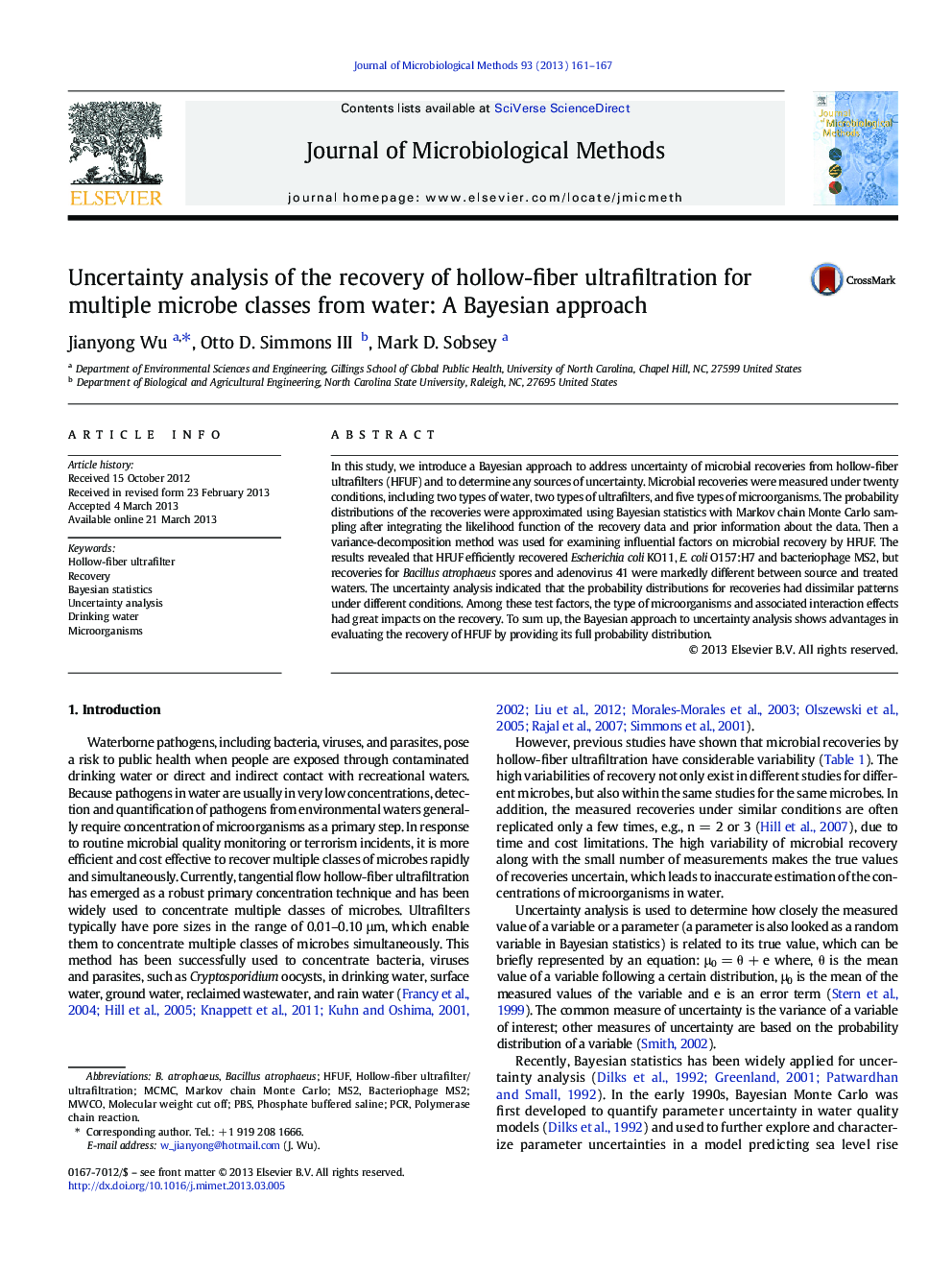| Article ID | Journal | Published Year | Pages | File Type |
|---|---|---|---|---|
| 2091456 | Journal of Microbiological Methods | 2013 | 7 Pages |
•We measured the recoveries of hollow-fiber ultrafilters under 20 conditions.•We obtained the posterior distributions of recoveries using Bayesian models.•The distributions of the recoveries vary considerably in different conditions.•The uncertainty of the recoveries is attributable to the type of microbes.
In this study, we introduce a Bayesian approach to address uncertainty of microbial recoveries from hollow-fiber ultrafilters (HFUF) and to determine any sources of uncertainty. Microbial recoveries were measured under twenty conditions, including two types of water, two types of ultrafilters, and five types of microorganisms. The probability distributions of the recoveries were approximated using Bayesian statistics with Markov chain Monte Carlo sampling after integrating the likelihood function of the recovery data and prior information about the data. Then a variance-decomposition method was used for examining influential factors on microbial recovery by HFUF. The results revealed that HFUF efficiently recovered Escherichia coli KO11, E. coli O157:H7 and bacteriophage MS2, but recoveries for Bacillus atrophaeus spores and adenovirus 41 were markedly different between source and treated waters. The uncertainty analysis indicated that the probability distributions for recoveries had dissimilar patterns under different conditions. Among these test factors, the type of microorganisms and associated interaction effects had great impacts on the recovery. To sum up, the Bayesian approach to uncertainty analysis shows advantages in evaluating the recovery of HFUF by providing its full probability distribution.
